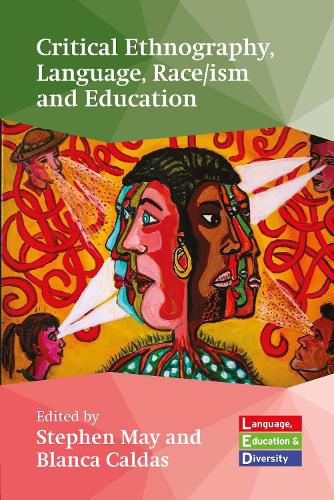Readings Newsletter
Become a Readings Member to make your shopping experience even easier.
Sign in or sign up for free!
You’re not far away from qualifying for FREE standard shipping within Australia
You’ve qualified for FREE standard shipping within Australia
The cart is loading…






This book provides a contemporary overview of work in critical ethnography that focuses on language and race/ism in education, as well as cutting edge examples of recent critical ethnographic studies addressing these issues. The studies in this book, while centred primarily on the North American context, have wide international significance and interdisciplinary reach and address a range of educational contexts across K-12 education and less formal educational settings. They explore the racialized construction, positioning and experiences of bi/multilingual students, and the implications of this for educational policy, pedagogy and practice. The chapters draw on a range of critical theoretical perspectives, including CRT, LatCrit, Indigenous epistemologies and bilingual education; they also address significant methodological questions that arise when undertaking critical ethnographic work, including the key issues of positionality and critical reflexivity.
$9.00 standard shipping within Australia
FREE standard shipping within Australia for orders over $100.00
Express & International shipping calculated at checkout
This book provides a contemporary overview of work in critical ethnography that focuses on language and race/ism in education, as well as cutting edge examples of recent critical ethnographic studies addressing these issues. The studies in this book, while centred primarily on the North American context, have wide international significance and interdisciplinary reach and address a range of educational contexts across K-12 education and less formal educational settings. They explore the racialized construction, positioning and experiences of bi/multilingual students, and the implications of this for educational policy, pedagogy and practice. The chapters draw on a range of critical theoretical perspectives, including CRT, LatCrit, Indigenous epistemologies and bilingual education; they also address significant methodological questions that arise when undertaking critical ethnographic work, including the key issues of positionality and critical reflexivity.